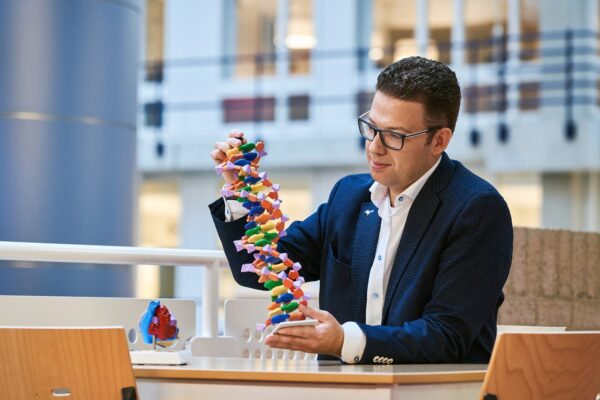
Ask an Expert: How The Conversation Is Changing Around Sleep

The importance of getting sufficient quality and quantity sleep has been known for quite some time, but it’s only recently that the concept of sleep health has been introduced as an important factor for overall health and disease prevention. To better understand the concept of sleep health and how the conversation around sleep is evolving, we interviewed epidemiologist Raymond Noordam, PhD, who is an Assistant Professor at the Department of Internal Medicine, Section of Gerontology and Geriatrics at the Leiden University Medical Center.
Q: Has the conversation around sleep changed over the last several years? What influenced this change?
A: The conversation has definitely changed. If you look at the different lifestyles that are important in health and disease – such as smoking and alcohol intake – it’s only recently that sleep has also increasingly been considered a risk factor for developing disease. We now have increased amounts of data available from large epidemiological studies, as well as the tools available to determine whether a relationship is causal or not. Furthermore, sleep is now also increasingly measured with all kinds of commercially-available eHealth tools.
Increasingly, we now consider this concept known as sleep health – rather than only sleep disorders such as severe insomnia, and narcolepsy. For example, in people that we usually consider “normal” in terms of their habitual sleep, we can already see strong relationships with several disease outcomes – which were also found to be causal. This already means that subtle changes in sleep behavior can impact health and disease development on the long term.
Q: The theme for World Sleep Day 2023 is “Sleep is essential for health”. Why do you feel this is important, and what are some steps that need to be taken for progress to be made?
A: Epidemiological studies already show that there are links between different aspects of sleep and different health and disease outcomes. However, it’s important to stress that sleep has a strong, multidimensional nature; for this reason, it’s still unclear what we can exactly define as “healthy sleep”. So in the next years, we should pay attention to creating a certain individualized reference range on what we can define as healthy, and what as unhealthy – especially concerning the development of disease. Next to that, we can investigate how we could intervene in these sleep disturbances to preserve health and prevent disease, and which other lifestyle factors have synergistic effects with sleep characteristics on health and disease development.
Q: Can nutrition play a role in supporting sleep health?
A: It seems that nutrition does play an important role in sleep health, but also the other way around – meaning that sleep can also influence our food intake. For example, previous epidemiological studies have shown that sleep deprivation can cause the individual to have an increased preference for food cravings possibly because of hormonal changes (for example ghrelin and leptin – hunger hormones) caused by sleep deprivation. As we know that nutrition can also have a positive impact on sleep, I think – and truly believe – there should be more emphasis on natural solutions for sleep problems.
Q: So in what ways can people improve their sleep health? What is important to focus on?
A: There are several recommendations to both improve your sleep and the quality of getting into sleep. An easy point is to prevent the use of digital devices just before going to bed; the blue light will inhibit the production of melatonin (an important hormone for sleep). Some foods are also associated with sleep quality; for example, a high amount of alcohol will decrease sleep, and coffee will have an influence as well. We are also currently exploring a study on the timing of physical activity that will influence sleep (this study is part of the NWA-funded Bioclock consortium).
What is important to also realise is that as human beings, we developed (evolved) in a time without electricity and light – so our lives are programmed according to a clear day/night cycle (circadian rhythm). Now these days, with factors like people working night shifts, having lights on in our home, and nightclub culture, we are changing our biology by living against our biological background.
Q: What emerging science will contribute to a better understanding of sleep health? What are ways that the community can help move sleep health research forward?
A: Sleep is increasingly studied as a multidimensional construct of multiple aspects of sleep. In addition, the availability of sleep data in large study samples is great to explore whether specific relationships are causal or not, and which biological disease mechanisms are modified by a disturbed sleep. This has led to some great recent developments in this field of research. How the community can help? Participate in research. There are many initiatives by universities and research institutes to improve sleep health. But we, as researchers, need your participation to help move the research forward!